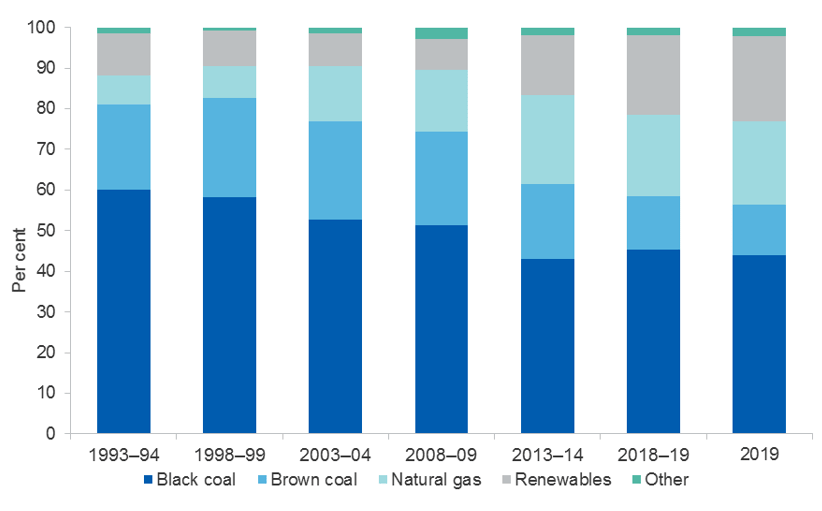The extrapolation is plausible
I can't directly answer the question exactly as it's written. The only way we could answer this question with any certainty is to wait and see - what happens if someone invents a way to automate non-renewable power plants so they don't need workers? Or what happens if someone invents a giant robot that automatically builds solar power plants?
But we can compare employment in renewable energy and non-renewable energy to get an idea whether this claim is plausible or not - is this extrapolation well founded?
I'm going to pick one market to examine just so this scope is manageable. This is Australia's energy mix:

Coal is 56%, Gas is 21 percent, oil is 2%, renewables is 21%.
14,000 Australians are employed in gas power generation. This includes extraction and distributions. This is a high estimate as it also includes plumbers working with gas with residential cooking and heating installations, and the infrastructure to export gas to other countries.
38,100 Australians are currently employed in the production of thermal coal power - (brown coal or black coal burnt for power is classified as thermal coal).
26,850 Australians are currently employed in renewable energy activities. 27% increase from 2017-18 financial year to 2018-2019 financial year. 120% increase over 10 years
- Coal employs 38100 / 56 = 680 people per 1% of Australia's power generation. Were Australia's power 100% coal we could extrapolate that it would employ 68,000 people.
- Gas employs 14000 / 21 = 666 people per 1% of Australia's power generation. Were Australia's power 100% gas we could extrapolate that it would employ 66,600 people.
- Renewables employs 26850 / 21 = 1278 people per 1% of Australia's power generation. Were Australia's power 100% renewable we could extrapolate that it would employ 127,800 people.
This extrapolation suggests that replacing a 100% coal Australia with a 100% renewable Australia would result in a net employment of 59,800 people, and every 1% that transitions from coal to renewables will employ an additional 598 people.
But wont renewable jobs plateau?
This extrapolation would be mitigated by economies of scale (more renewable energy generation is residential rooftop solar than large scale solar farms), and by a surge in the number of construction jobs as renewable projects are done. Gas power generation is also experiencing similar growth in Australia to renewables yet the number of people employed per unit of power is in the same ballpark as coal, which is trending down in that energy mix graph.
If our power needs plateau this century so no more construction is needed, after our power reaches maximum renewable levels, there will likely be a reduction in renewable energy jobs as no more construction is needed. This is unlikely to occur before we've reached net zero carbon, so for Australia around 2050.
Boris Johnson will be either dead or have long since retired from politics by the time this happens - if it ever does happen, so it's reasonable to assume that this is beyond the scope of his answer.

